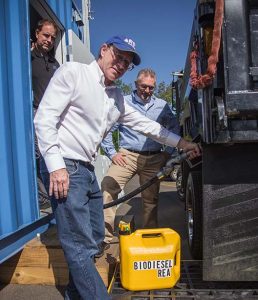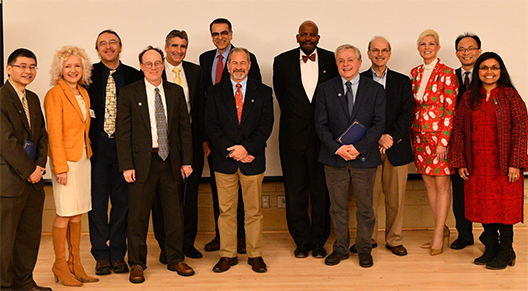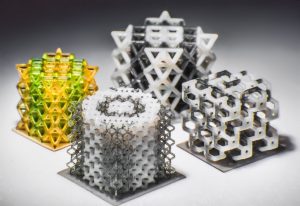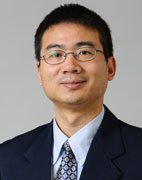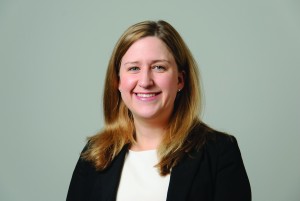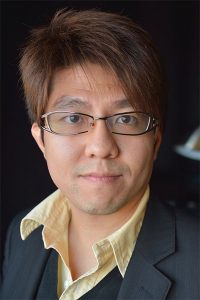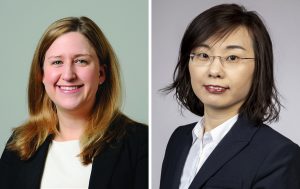
Each year, the American Chemical Society’s Division of Polymeric Materials: Science and Engineering (PMSE) honors young investigators through its PMSE Young Investigator Symposium which provides an opportunity to highlight the accomplishments of its honorees. Honorees are chosen from early-career emerging leaders who have made significant contributions in their respective fields within polymer materials science and engineering. The invited honorees speak at a two-day “PMSE Young Investigator” symposium, held during the Fall National Meeting of the American Chemical Society.
IMS faculty members Kelly Burke and Xueju “Sophie” Wang have been named PMSE Young Investigator Honorees for 2022 and will speak at the two-day “PMSE Young Investigator” symposium, to be held during the Fall National Meeting of the American Chemical Society.
Kelly Burke joined the UConn faculty in 2014 as Assistant Professor of Chemical and Biomolecular Engineering with an appointment in the Institute of Materials Science. She has been recognized for her accomplishments, including the National Institute of Health Ruth L. Kirschstein National Research Service Award and the prestigious NSF CAREER Award. She was appointed Director of the IMS Polymer Program in September 2021.
Sophie Wang joined the UConn faculty in 2020 as an Assistant Professor in the Materials Science and Engineering Department with an appointment in the Institute of Materials Science. She has consistently distinguished her research with numerous publications and as the recipient of the ASME Orr Early Career Award, and the NSF CAREER Award. She is an associate faculty member of the IMS Polymer Program.
IMS congratulates both Kelly and Sophie on this accomplishment.
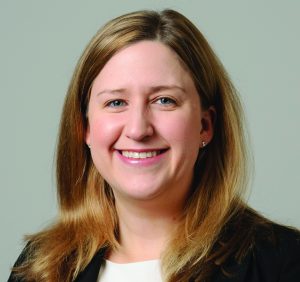
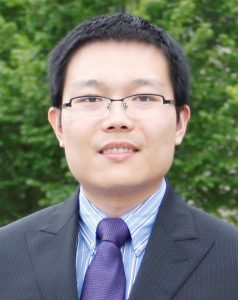 Dr. Ying Li is one of eight UConn faculty members, and three IMS faculty members, to receive a National Science Foundation Career CAREER Award in 2021. Li will develop a machine learning model to better understand the properties of a promising sustainable material.To learn more about the award
Dr. Ying Li is one of eight UConn faculty members, and three IMS faculty members, to receive a National Science Foundation Career CAREER Award in 2021. Li will develop a machine learning model to better understand the properties of a promising sustainable material.To learn more about the award 